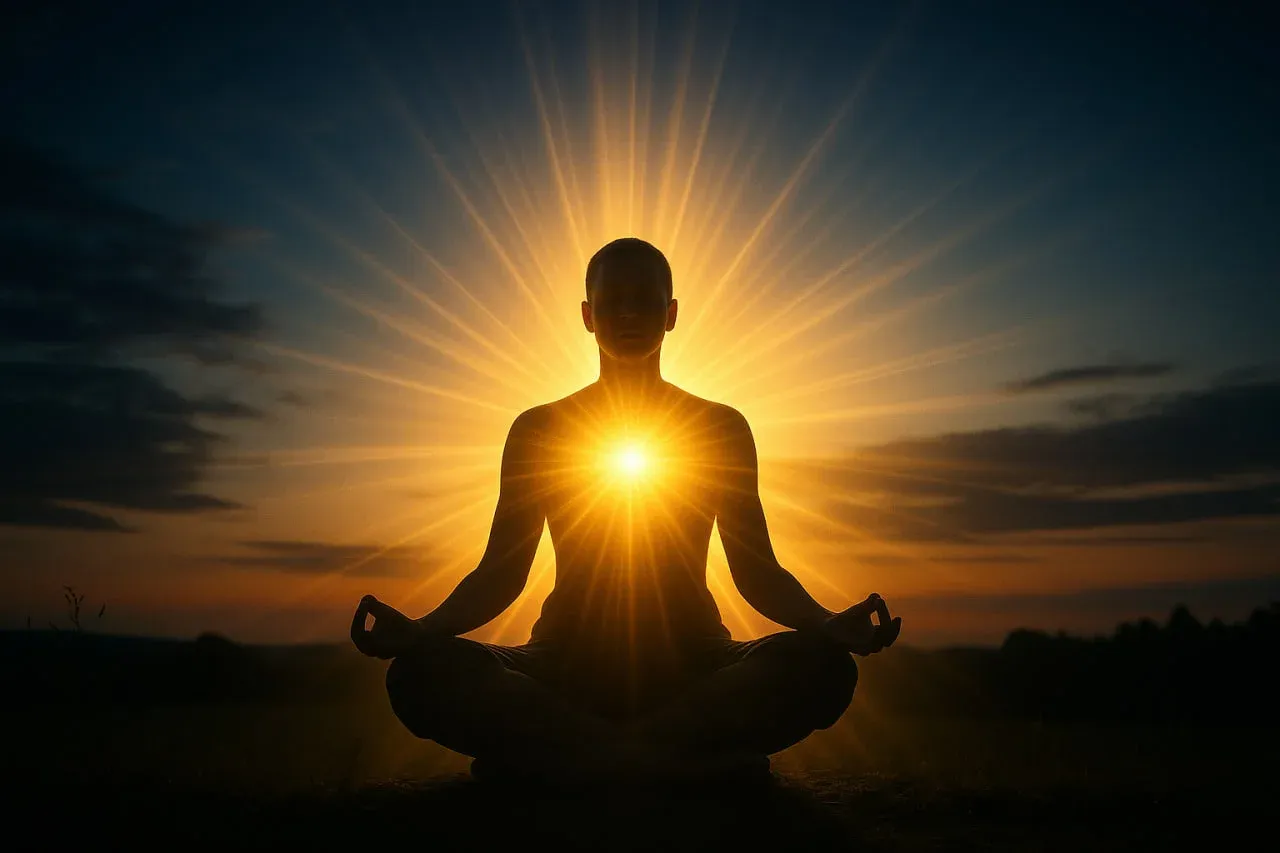How Reincarnation Works: Soul, Karma, and Past Lives

1. The Indian Understanding of Reincarnation: A Spiritual Path Through Lives
What is reincarnation in Indian tradition?
In traditional Indian philosophy, life is infinite. This helps explain why we face certain difficulties, meet people, and experience attachments. This can be linked to your past, when you've already met these people.
Eternal soul vs. temporary body
In their teachings, the body is temporary and changing, but the soul is constant, unchanging, and indestructible. The soul is neither born nor dies; it acquires a body at birth and leaves it at death. This understanding fosters a different approach to life: less fear of the end, more emphasis on the meaning of actions and inner development. Explore our Life Path Psychics to learn more.
Why does the soul move from body to body?
According to Indian philosophy, reincarnation continues until the soul achieves its purpose, is cleansed of attachments, and fulfills unfulfilled desires. Each new life is a chance to correct, understand, and let go.
Why is a person reborn?
Life does not end with death; the body may cease to communicate with the outside world, but the soul will continue to develop and await the moment of rebirth.
Lessons the soul must learn
The meaning of rebirth lies in life's difficulties, which may seem unfair, but are trials necessary for growth; problems don't weaken people. By experiencing different roles and difficulties, a person gains the opportunity to see the reasons behind their trials.
How does the law of karma work?
Each person has a record of everything they've done in their life, and this memory shapes our personality. Some people face problems for no apparent reason, while others experience happiness without doing anything about it most likely, the reason lies in their karmic legacy.
Karma as cause and effect
Karma is the mechanism that links actions and consequences. What we call fate is a reflection of our actions, even if those actions weren't taken in this life.

Looking for answers?
Consult with an experienced psychic. Love, relationships, health, career—choose the specialist who can help you.
Find a psychicThe emergence of interest in Hinduism and Buddhism
Hinduism and Buddhism have attracted attention among Western audiences because they offer a logically structured system where every action has a consequence, and where responsibility transcends external signs. These traditions eschew the idea of chance; everything that happens has a root.
Past life regression as a tool
With the growing interest in Eastern views of humankind, a practice called past-life regression began to emerge. This method involves using relaxation to focus attention on images unrelated to one's life. Such images are perceived as memories, although no one can say for sure that they represent past events.
How does a session go?
The session takes place in a calm environment. The therapist guides the patient into deep meditation, after which they offer questions and images. The patient may recall moments that feel like events from another life. What's important isn't the historical validity of these memories, but rather how they resonate emotionally, what feelings they evoke, and what changes occur after working with them. Sometimes, such images allow the patient to rethink their history and free themselves from spiritual conflicts.
Why do people in the West have the idea of past lives?
One of the reasons the idea of reincarnation is gaining traction is the opportunity to look at one's difficulties differently. Within the concept of past lives, a person gets the chance to step out of the box (I don't understand why this is all happening) and begin to perceive their life from a different perspective.
Explaining the Unexplained: Trauma, Phobias, Unexplained Reactions
Some conditions, phobias, or inner fears cannot be explained in the current life. From this perspective, the idea of past lives becomes a tool for finding another context, regardless of what exactly happened.
Strengthening a sense of meaning and spiritual perspective
This adds more meaning to the present day, and perhaps even difficulties are part of the process.
Use as a tool for self-knowledge
For many, past lives aren't a philosophy, but a tool. They offer an opportunity to look at themselves from a different perspective. It's not an attempt to prove something, but rather an opportunity to ask yourself questions.
3. Interpretations and Misconceptions: A View from Indian Philosophy
Everyone remembers their past lives
Most people don't remember anything, and that's normal. They say we don't remember the past because it would interfere with our focus on the present. Such a volume of information is beyond our capacity. According to philosophy, a person is given exactly as much karmic memory as they can process, meaning we won't go beyond our own limits here.
Reincarnation guarantees progress
| Myth or Expectation | Reality | Key to Progress | Explanation |
|---|---|---|---|
| Reincarnation guarantees spiritual growth | Rebirth alone doesn’t lead to personal evolution | Awareness and inner work |
A person can live many lives and still repeat the same patterns. Growth begins with conscious reflection and change. |
It's all fiction - there's no evidence
From a scientific perspective, reincarnation hasn't been scientifically proven, but it hasn't been disproved either. And if it works as a way to understand oneself, then it has value.
Conclusion: Why are people interested in reincarnation?
Helps you better understand your decisions and their consequences
If you view life through karma, you understand that every action leaves a mark. And not only in the world, but also within you, an inner responsibility emerges, not from fear, but from the understanding that everything has consequences.
Promotes personal growth regardless of religion
Reincarnation is an opportunity to see deeper, regardless of belief. A person can use this concept as a way to ask themselves important questions:
- What am I repeating over and over again?
- What scenarios am I unable to let go of?
- Where am I ready to move to the next level? Sometimes, to truly change, you need to stop looking at things simply, without thinking.
FAQ
How many lives does a person live?
Within Indian philosophy, this question has no precise numerical answer. The soul is essentially eternal - it is neither born nor dies, but simply passes from one body to another. The number of lives depends not on an external count, but on internal progress. As long as a person has unfinished desires, attachments, and fears, they will return to navigate them consciously.
Is it possible to find out exactly who you were in a past life?
Interest in this question is understandable: we seek to explain certain traits, fears, or recurring patterns. But from the perspective of this same tradition, knowing "who you were" is not an end in itself. The important thing is not who you were, but what you carry with you now. Some practices, such as regression, can produce images and states similar to memories.
Can children's memories be considered proof of past lives?
Sometimes children recount events they couldn't have known. In some cases, these details are confirmed; there's no scientific evidence to support these stories, but they often make one wonder about the possibility of reincarnation.
Why don't we remember our past lives?
Conscious embodiment requires focusing on the current life, not all past ones.
Is reincarnation about karma?
You could say they are connected, like cause and effect. It's a reflection of how you live, what you rely on, and the choices you make.






